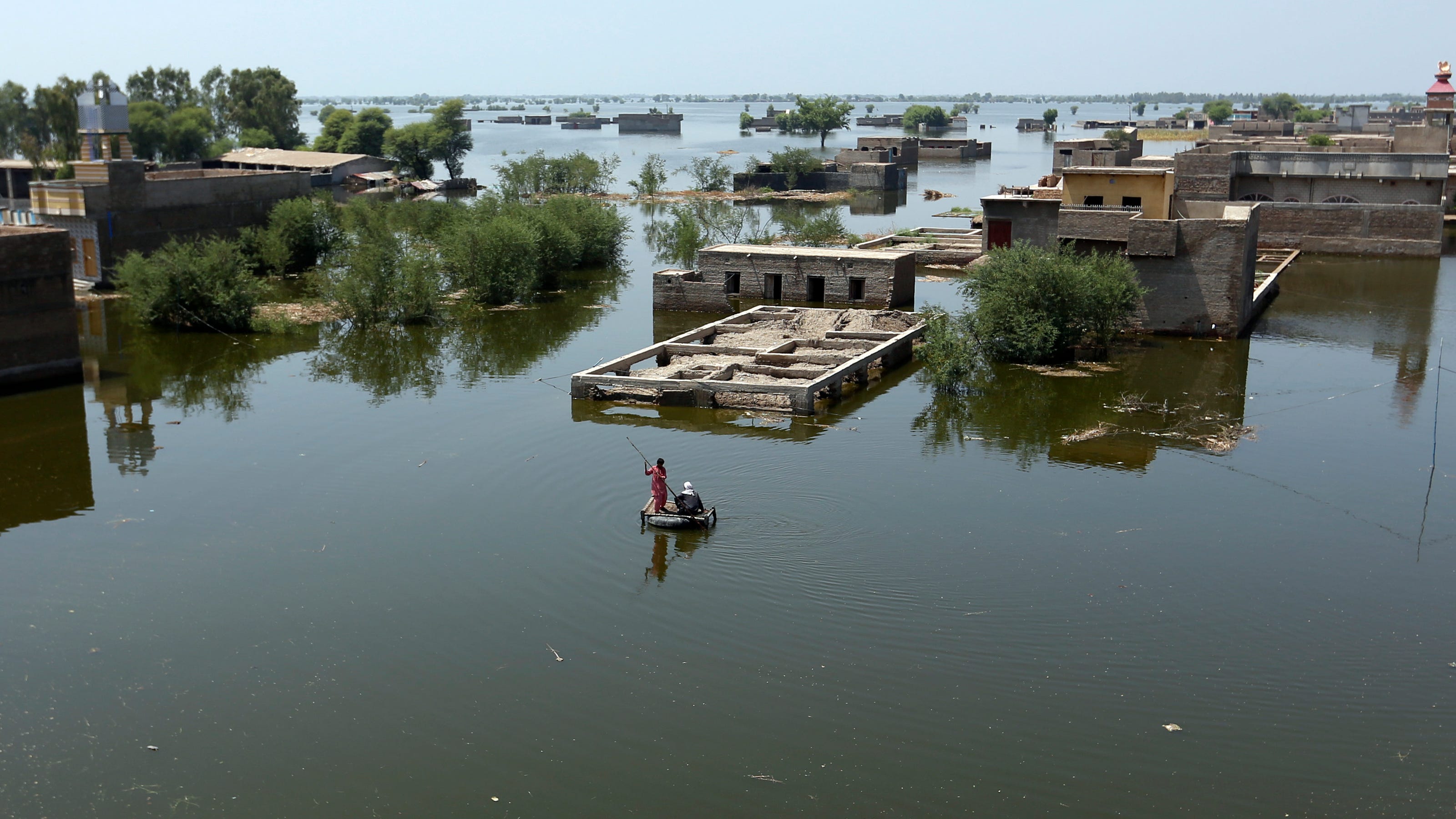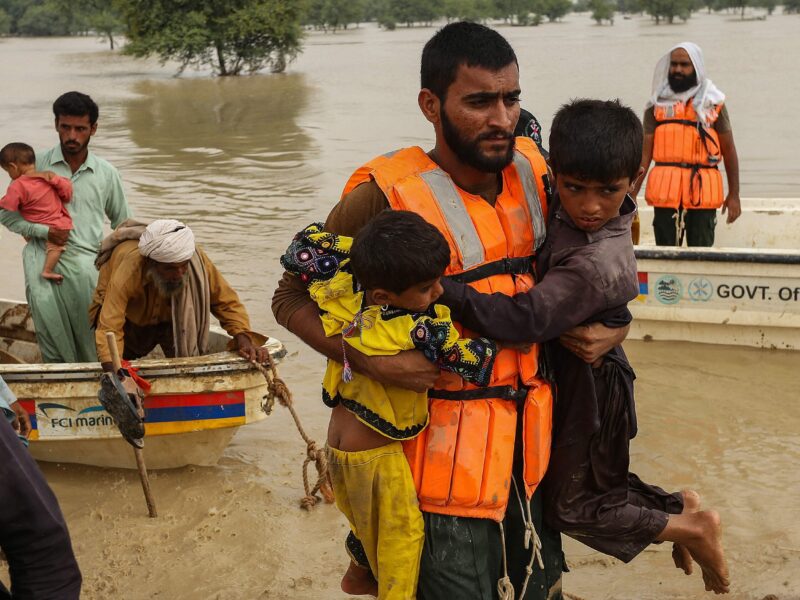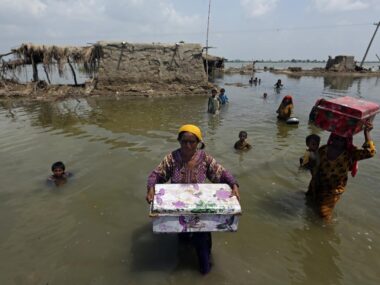The torrential monsoon rains in Pakistan left almost 10 million children at risk of waterborne diseases, drownings, and malnutrition as a result of Pakistan suffers devastating floods disaster.

As a result of the disaster, hundreds of thousands of homes, schools, and public health facilities have been destroyed or damaged. In the aftermath of the floodwaters receding, the crisis has become one of acute child survival. Children suffer from malnutrition, diarrhea, dengue fever, typhoid, acute respiratory infections, and painful skin conditions. Children can suffer both physical and mental health problems as a result of long-term crises.
UNICEF is providing safe drinking water, lifesaving medical supplies, therapeutic food, hygiene kits, and other supplies to children and their families. Additionally, we are establishing temporary learning centers and providing psychosocial support for flood-affected children.
We must do much more to help flood-displaced families overcome this climate catastrophe.
Your urgent support is needed to help save lives

Is there something wrong?
The monsoon rains in Pakistan this year have brought devastating rains, floods, and landslides, affecting 32 million people, including 16 million children. Dams were breached and rivers overflowed. Homes, farms, schools, hospitals, highways, roads, and critical infrastructures, such as schools, bridges, hospitals, and public health facilities, were destroyed.
Due to damage to water supply systems and sanitation facilities, millions of people no longer have access to safe drinking water. Despite UNICEF’s efforts to provide clean water, families continue to drink disease-ridden water. They are currently suffering from deadly water-borne diseases.
More than one in nine children under five in flood-affected Sindh and Balochistan suffer from severe acute malnutrition. Children’s immune systems are weakened because they are too thin for their height, which can be life-threatening.
Most of Pakistan’s hardest-hit areas are in its most vulnerable regions, where malnutrition rates are high and water and sanitation are inadequate. Climate-related crises will have different effects on different people. Children will suffer more than adults in the poorest communities.
Make a difference by saving and protecting Pakistani children
UNICEF is doing everything it can to protect children and families affected by malnutrition, waterborne diseases, and protection risks. Children and women affected by the floods are receiving life-saving medical supplies and other emergency supplies from UNICEF and partners.
UNICEF has provided immediate emergency supplies and services using prepositioned emergency supplies. Among the supplies are medications, nutritional supplements for children, pregnant women, and lactating mothers, vaccines, and mosquito nets. As a result, dozens of portable health clinics are providing lifesaving assistance to refugees.
Aside from helping children resume learning, UNICEF will support the Government to restore critical services as soon as possible. Over 200 temporary learning centers have been established by UNICEF to help traumatized children cope with their situation and re-establish a normal routine.
You can save lives by supporting us during these difficult times. By donating to UNICEF, you can help UNICEF provide emergency, life-saving supplies to more children and families.

